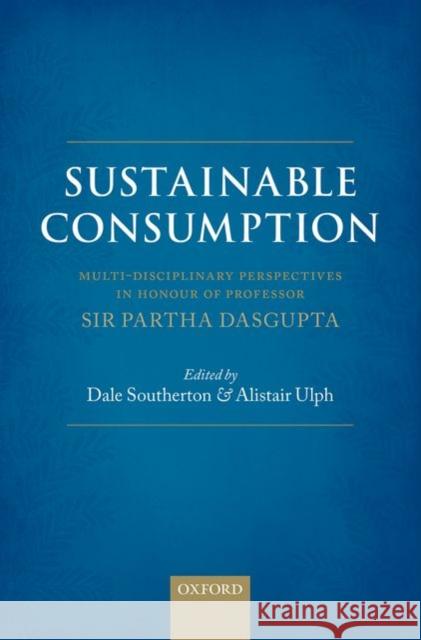Sustainable Consumption: Multi-Disciplinary Perspectives in Honour of Professor Sir Partha DasGupta » książka
Sustainable Consumption: Multi-Disciplinary Perspectives in Honour of Professor Sir Partha DasGupta
ISBN-13: 9780199679355 / Angielski / Twarda / 2014 / 320 str.
If global society is to address the many environmental and other sustainability challenges that confront us in the twenty-first century, such as climate change and water resources, it will be necessary to make significant changes in our patterns of consumption, production, and distribution. There is a growing realization that while changes in production and distribution are formidable, the proposed solutions may not succeed unless it is possible to persuade individuals and households to change their patterns of consumption to make them more sustainable.
However there are significant differences in how key disciplines such as psychology, neuroscience, economics, politics, sociology, anthropology, and history conceptualise consumption, empirically test their theoretical predictions, and use these to inform policy-makers across the private, public and third sectors on how to make consumption more sustainable. This book contains chapters from world-leading experts in these different disciplines that seek to explain the perspectives on sustainable consumption of their disciplines, suggest how these might be further enriched by taking on board some of the findings from other disciplines, and consider what this implies for new policies to address the key sustainability challenges outlined above.
The book is dedicated to Professor Sir Partha Dasgupta, one of the world's leading economists who has worked across a range of topics, including environmental and resource economics and development economics, and throughout his career has sought to incorporate into his economic thinking ideas from a range of other disciplines.











